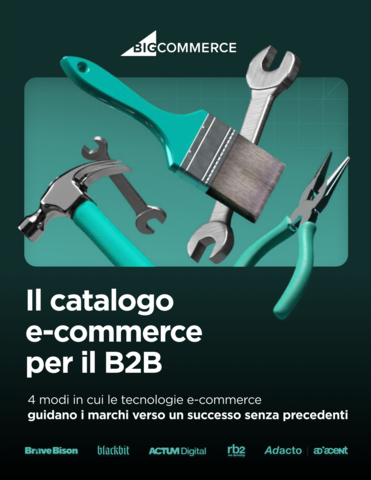To deliver tomorrow’s customer experience, team silos must be demolished
Sponsored by HubSpot
Internal company friction is holding back customer experience. Unifying your teams offers a path to a better, more scalable future, writes Inken Kuhlmann-Rhinow, Marketing Director EMEA from HubSpot
The customer has changed. Or at least, the customer has been changed by the unique events of the past 12 months. Across the board, from groceries to clothing, online shopping has exploded in the UK, up 74 per cent year on year in January. The global market for B2B e-commerce is also experiencing an online shift, with B2B electronic sales up by 9.6 per cent in 2020. Lockdowns have forced consumers and customers to go fully digital, and they expect brands to have made the leap with them. No matter whether it is over the phone, over email or on a website, customers expect brands to surprise and delight them, and to understand them at a minimum.
As lockdowns increase customer expectations, the digital experience will most likely not change, and the shift looks permanent. Despite this, not all companies are meeting their customers’ minimum expectations. The rapid shift to remote working has thrown into sharp relief how the entrenched silos between sales, marketing and customer experience teams pose an issue for organisations trying to adapt to the new normal.
Demolish silos and allow teams to work together
Many companies’ reactions to Covid revolved around the quick implementation of technology to support remote teams and the new all-digital customer paradigm. As ever, though, doing something quickly can have its downsides. For some businesses, this has meant that their tech stack has, over time, become a patchwork of components from different tech providers. This crafted approach can entrench inter-system inefficiencies and allow suboptimal tech decisions to compounded and become a block to success.
One such issue comes from the practice of setting up sales, marketing and customer experience teams to operate independently of each other, focusing purely on their own outputs. Stemming from this approach, each team may be using totally separate systems and platforms, which work well for that team’s needs, but make sharing information between them time-consuming and cost-intensive.
Businesses which have identified the friction being caused by this may have formed and hired operations teams to solve issues, but these operations teams have ended up working within the same siloed system, which has limited their effectiveness in solving the root causes. They have instead been reactively implementing fixes for their teams rather than working on the bigger picture.
We can now see that the issues have been baked into these companies’ tech stacks, with systems that are great at supporting each team, but with different ways of storing data and poor integration that can make cross-team data sharing a nightmare. This situation is especially relevant for businesses that are growing quickly. What may have worked for your businesses at a certain size may not have the capacity to support your next stage of growth, and the inter-team friction means ensuring a great customer experience is taking more effort than it needs to.
The single point of customer truth
Businesses need to recognise that the siloed mindset doesn’t reflect today’s customer journey. From marketing, through sales and into after-care, customers expect to be fully understood at each stage. If they have customer care issues, they want whoever they are talking to to understand what happened during sales, and what marketing interaction has occurred. Most importantly, they don’t want to have to repeat the details of their story to a new representative at each stage.
To be able to grow better, businesses’ systems need to run better, to support a better customer experience. This requires a two-pronged approach to improve cross-team workflow that both updates the organisational level approach and ensures teams have the right tools at their disposal.
We promote the “revenue operations” mindset, which aligns all operations teams on the single goal of improving incoming revenue, and reducing internal company friction accordingly, rather than having ops specialists only focusing on the issues that affect their silo in the business.
Adopting this mindset is dependent on businesses having platforms in place which free up users to focus on their jobs and collaboration, rather than managing different datasets and jumping over hurdles to just be able to work with colleagues in the first place. This is why we developed Ops Hub, our latest solution through which operations teams can sync data across their business apps bi-directionally in real time, roll out automated workflows that keep customer databases clean and up to date, and manage all possible customer touchpoints. By unifying operations teams, it frees them to break down the silo walls, fighting the friction between teams and implementing processes that can make a real difference to customer experience.
Ops Hub interfaces with the existing Hubs in our CRM platform, giving businesses one powerful and easy-to-use platform from which they can align sales, marketing, customer experience and operations teams to deliver the best experience for their customers.
Our robust CRM platform can act as the home for the “single point of truth” of your customers. Regardless of the brand touchpoint, if teams can draw from the same central hub of information, they can make the customer feel known and understood, and teams can see any issues in their relationship with the brand. With a single platform holding all the information, friction between teams is dramatically reduced as each team speaks the same language about the same customer, and operations can focus their attention elsewhere. Discrepancies in their experience become more apparent, and any issues can be solved much quicker.
It can seem daunting making a whole change in mindset, but businesses need to make sure their tech stack and the platforms they use to facilitate their work are fit for purpose, and that reluctance to make large scale changes doesn’t block opportunities to improve customer experience and accelerate an upward trajectory. To ensure they can deliver a high-quality digital experience, businesses need to have closer inter-team collaboration to not only deliver the customer experience that is now expected, but to be able to move beyond that and truly delight the customer.
To find more about HubSpot Operations Hub, click here
Image provided by HubSpot
Most Viewed
23-29 Hendon Lane, London, N3 1RT
23-29 Hendon Lane, London, N3 1RT
020 8349 4363
© 2024, Lyonsdown Limited. Business Reporter® is a registered trademark of Lyonsdown Ltd. VAT registration number: 830519543
Join the Business Reporter community today and get access to all our newsletters, and our full library of talk show episodes
Join the Business Reporter community today and get access to all our newsletters, and our full library of talk show episodes





